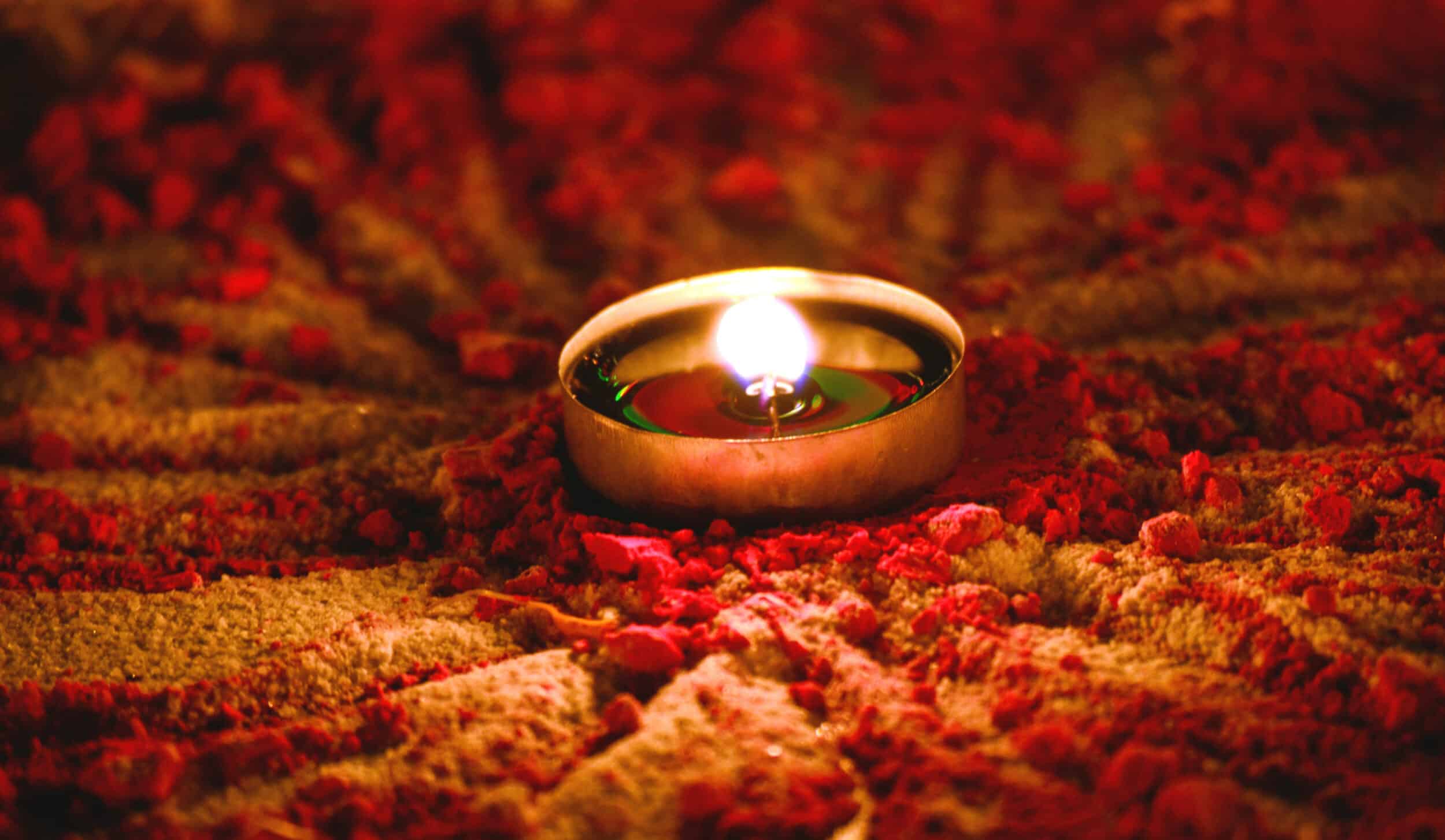
The Meaning of Diwali
Clay lamps. Inner light for dark nights. Diwali is known as the festival of lights, and is celebrated by people of various faiths in India. Here, friend of the Seaport, The Culture Tree founder Anu Sehgal takes us inside the significance of the celebration, and the various ways families here in the U.S. celebrate the festival.
Diwali or Deepavali is India’s major festival that is celebrated by Hindus, Buddhists, Jains, and Sikhs. This festival of lights gets its name from clay lamps (deepa) arranged in a row (avali). Indians light diyas (clay lamps) outside their homes to symbolize the inner light that protects them from spiritual darkness. Diwali occurs on the darkest night of the lunar month, which is also the day of the new moon, and is celebrated with fervor for five days.
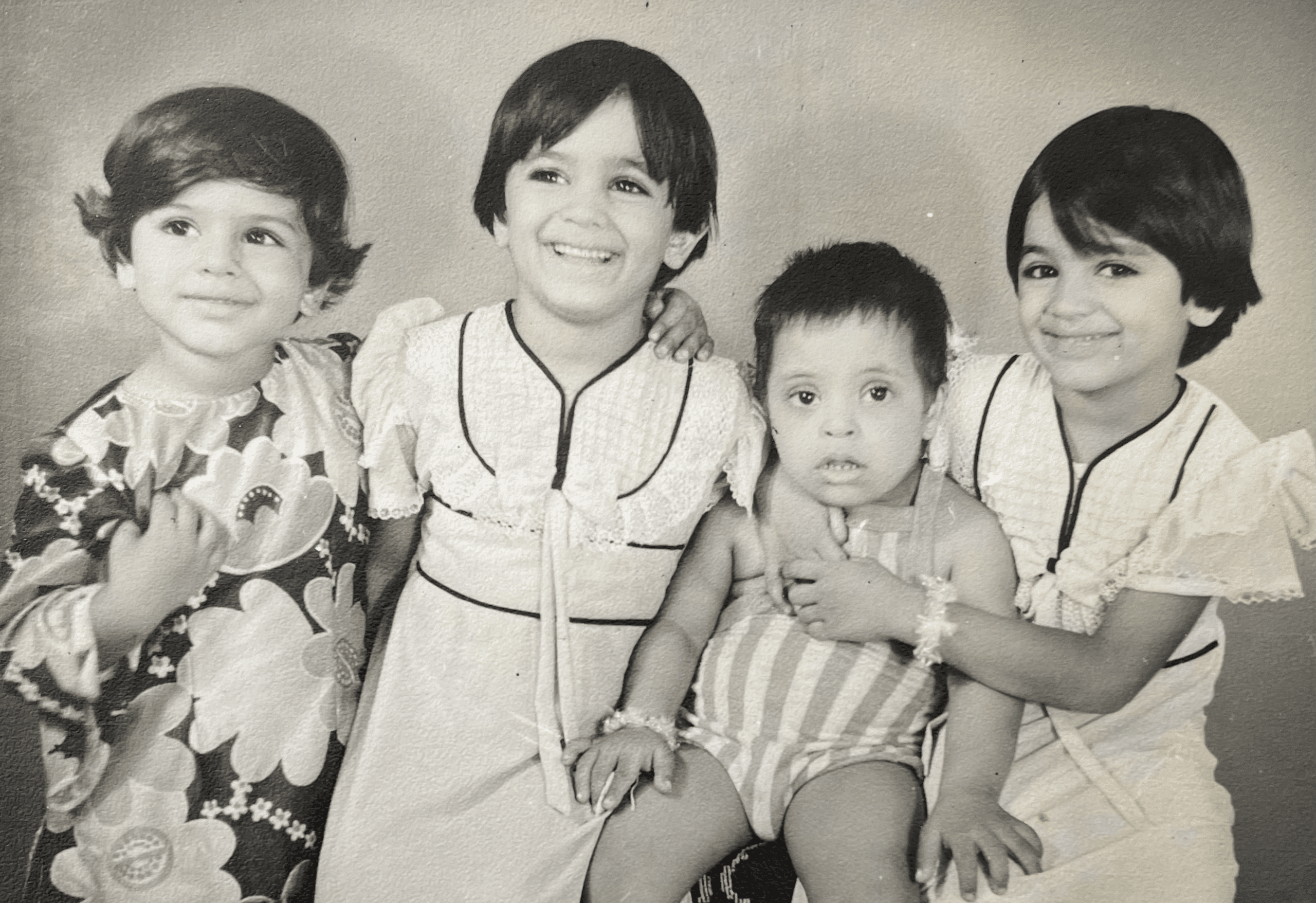
Anu: When I was little, our Diwali celebration and preparation in India was an elaborate and multi-day process. I loved every aspect of Diwali. The cleaning and cleansing of our household, mithai (sweets) shopping for gifting, purchasing fireworks, going to lavish Diwali parties, and making rangoli in our courtyard. My favorite part about Diwali was when on the Diwali night, we used to get together with friends in the neighborhood to enjoy fireworks till midnight, while eating delicious food and mithai.
What Diwali means to me: New beginnings and dispelling ignorance.
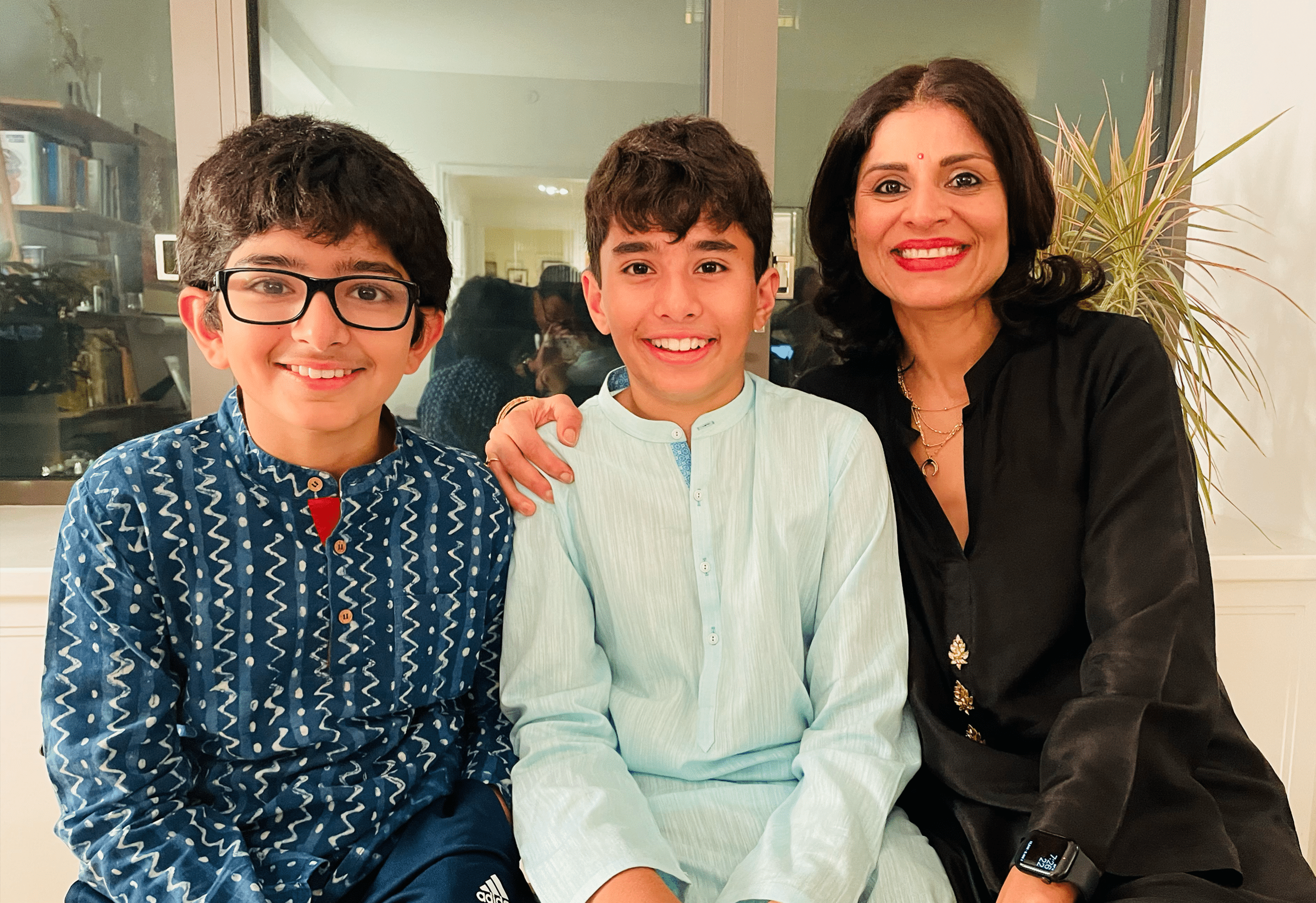
Nikhil Sethi, 14, New York: Diwali is my favorite festival. A week before Diwali, I write Diwali cards for my aunts and their families and my grandmother. My mom sends them boxes of mithai and the cards. We all deep clean our homes a few days before Diwali. The day of Diwali, we meet other Indian families that we have known for years. I love wearing kurta pajamas and helping prepare delicious food that we take to the parties.
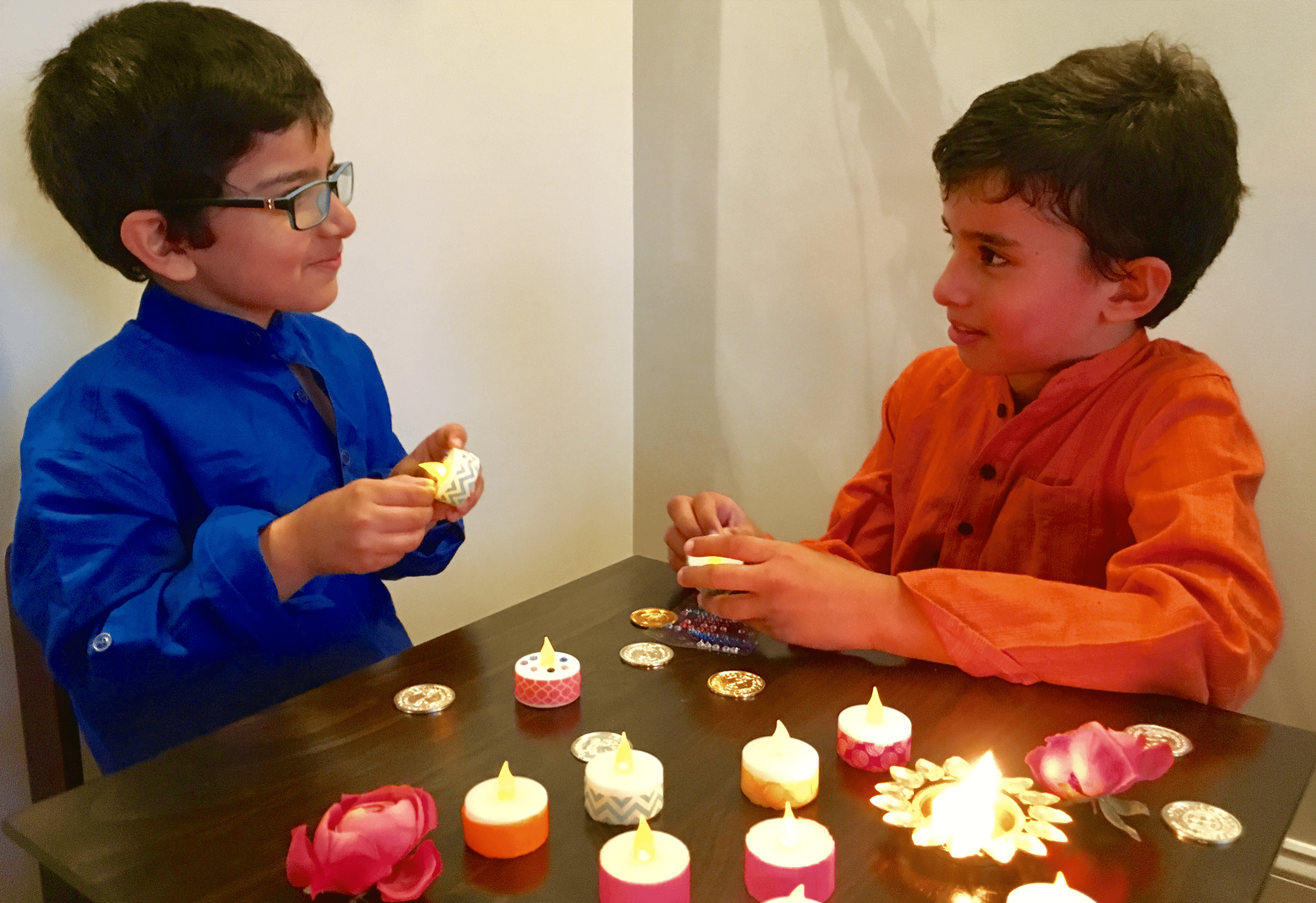
We first start with Lakshmi puja (Prayers to Goddess Lakshmi) and then we all eat mithai and delicious vegetarian Indian food, then all the kids play and the grown-ups play cards. My favorite thing about Diwali is celebrating it with close friends and my family.
What Diwali means to me: India and my heritage.
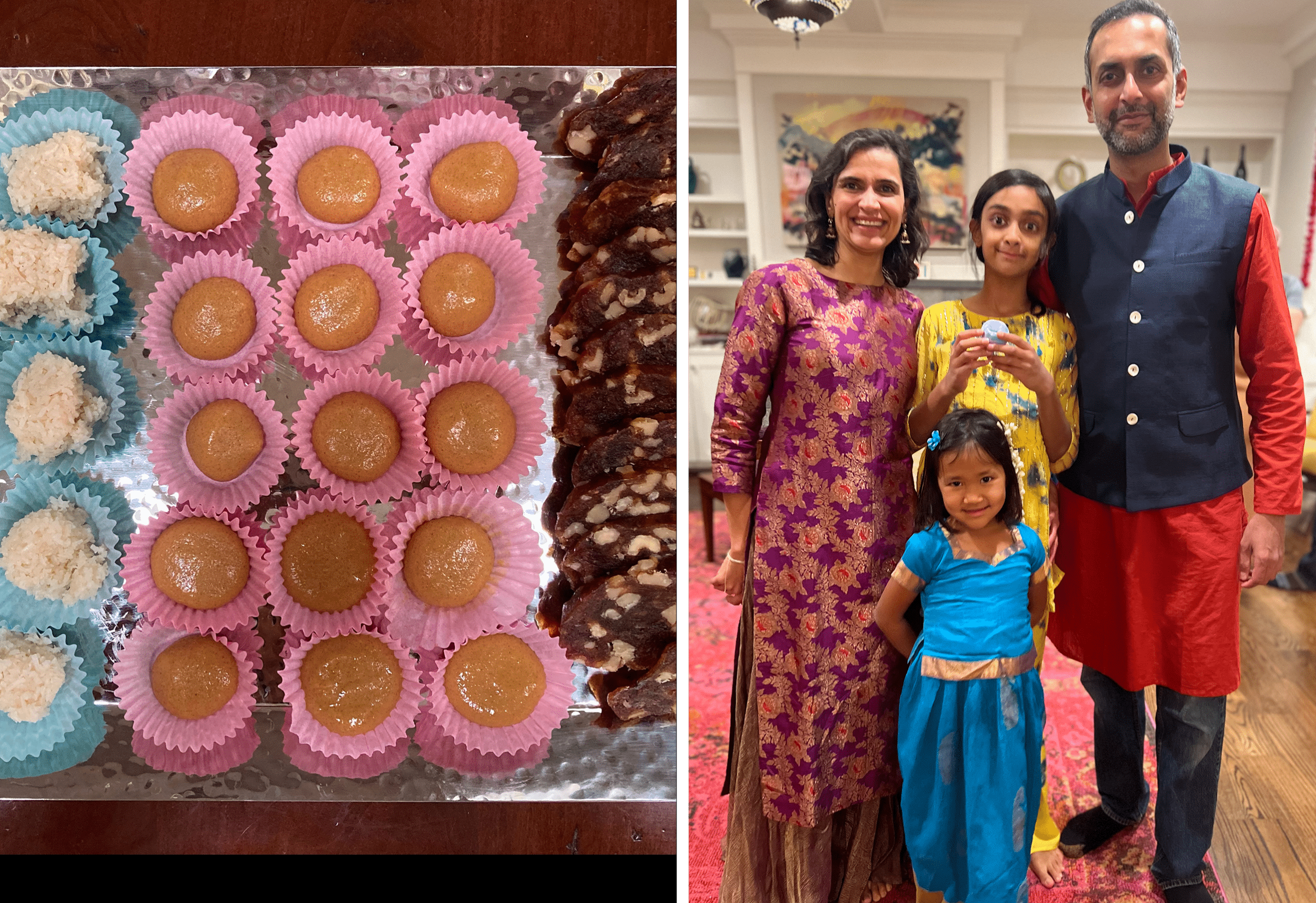
Leela Ramaswami, 10, Washington, D.C.: Diwali is the Hindu festival of light and welcoming. In my home, we follow many customs. A few days before Diwali, we clean our house and make sweets like laddos, kaju ki barfi, and coconut burfi. On Diwali, in the morning I make a rangoli at our front door using colorful chalk. Then, in the evening we do Lakshami puja to welcome health and happiness. At night, we light diyas, wear Indian clothes, and celebrate with friends and family.
What Diwali means to me: Diwali is special to me because we get to make art, cook food, and feel safe and happy under the protective shield of gods.
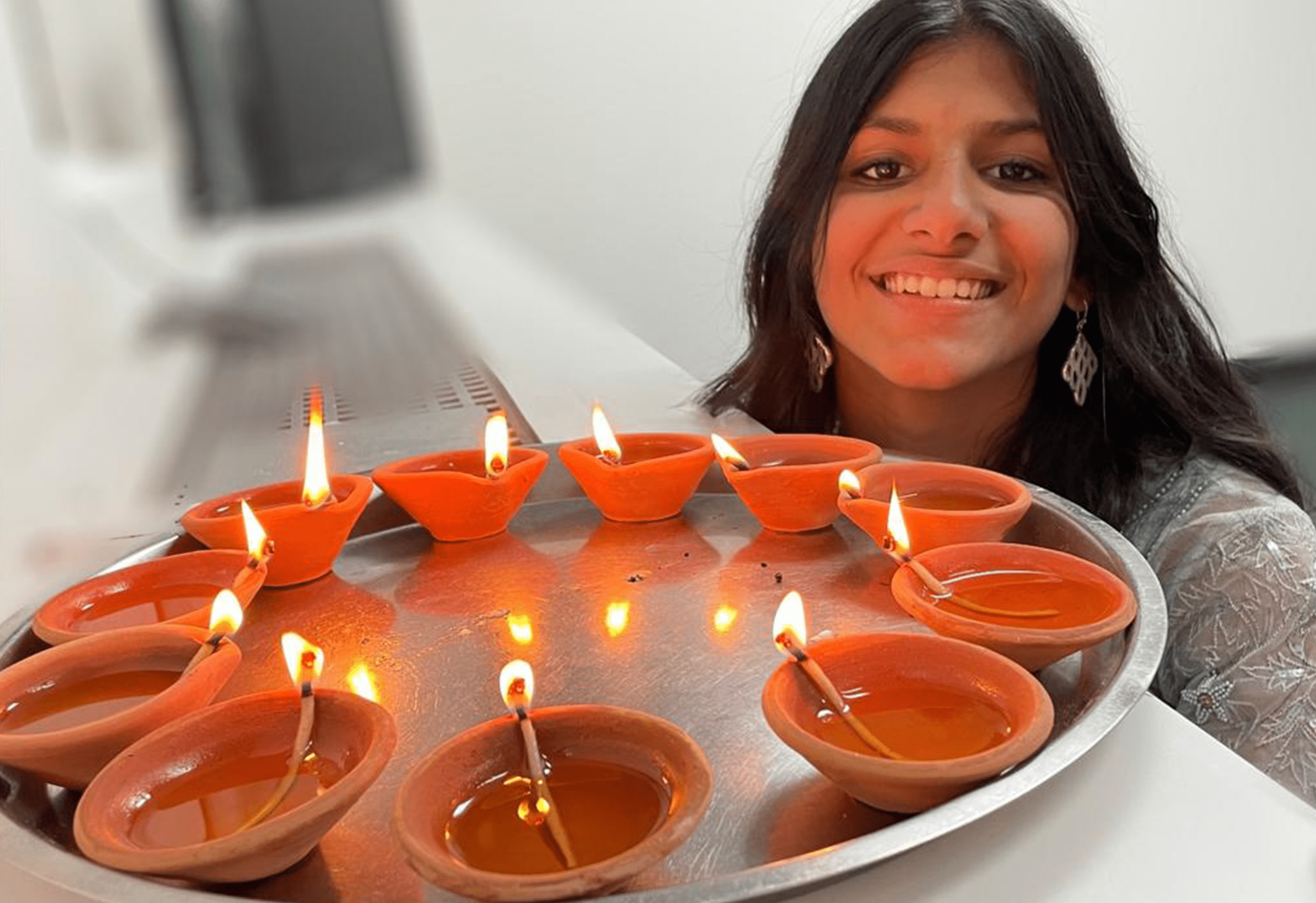
Vivaan Pandya, 12, and Anusha Pandya, 15, Long Island: Diwali, known as the Festival of Lights, holds a special significance for Jains. Diwali symbolizes multiple aspects, primarily the attainment of Nirvana by Lord Mahavira, the 24th Tirthankara, which marks the culmination of spiritual endeavors. It’s a time to reflect on the importance of non-violence, truth, and self-discipline, fundamental principles of Jainism. This occasion is about the victory of light over darkness and of knowledge over ignorance.
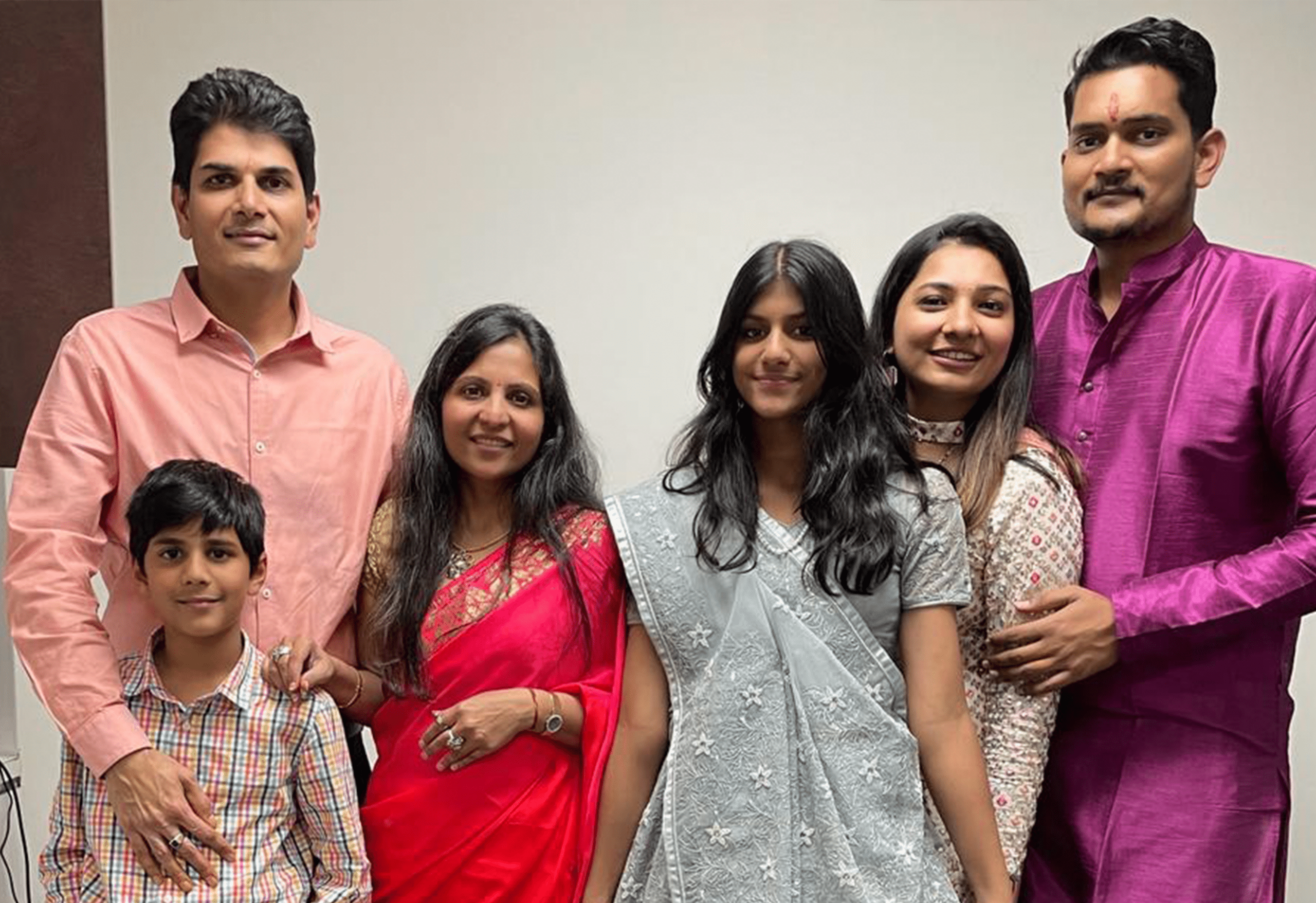
One distinctive tradition of Diwali among Jains is the lighting of traditional oil lamps, known as Diyas, and offering Niravana laddu (handmade sweets) in praise of Lord Mahavira. The prayers are simultaneously offered to all the souls who have attained enlightenment. This day marks the beginning of Jain calendar New Year. The act of visiting family and friends to exchange greetings and sweets is a cherished aspect of Jain Diwali celebrations.
What Diwali means to us: Importantly, Jains use this occasion to reinforce their commitment to non-violence, not just towards humans but also towards all living creatures.
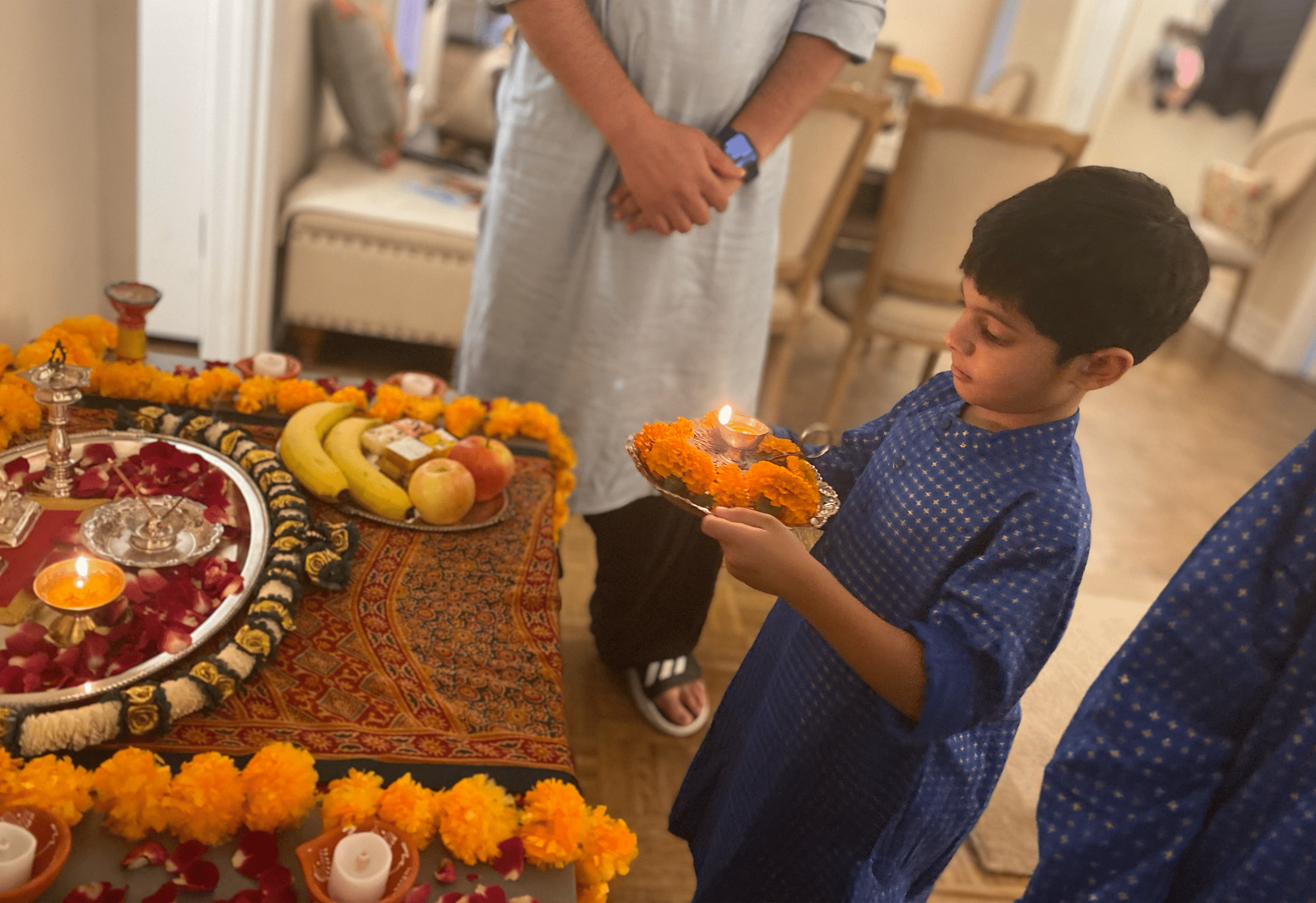
Ved Mukherjee, 10, New York: My experiences with Diwali involve lighting diyas, little clay lights, and adding rangolis, flowers and honoring the Gods. We eat Indian sweets and vegetarian food on Diwali, like mithai, puris, kheer, and samosas to name a few. During Diwali, people wear their finest clothes, illuminate their homes with diyas, make rangoli, perform prayers to Lakshmi, the goddess of prosperity and wealth, and light fireworks! Diwali has always been the time when I meet my cousins and we all wear our ethnic outfits for the day.
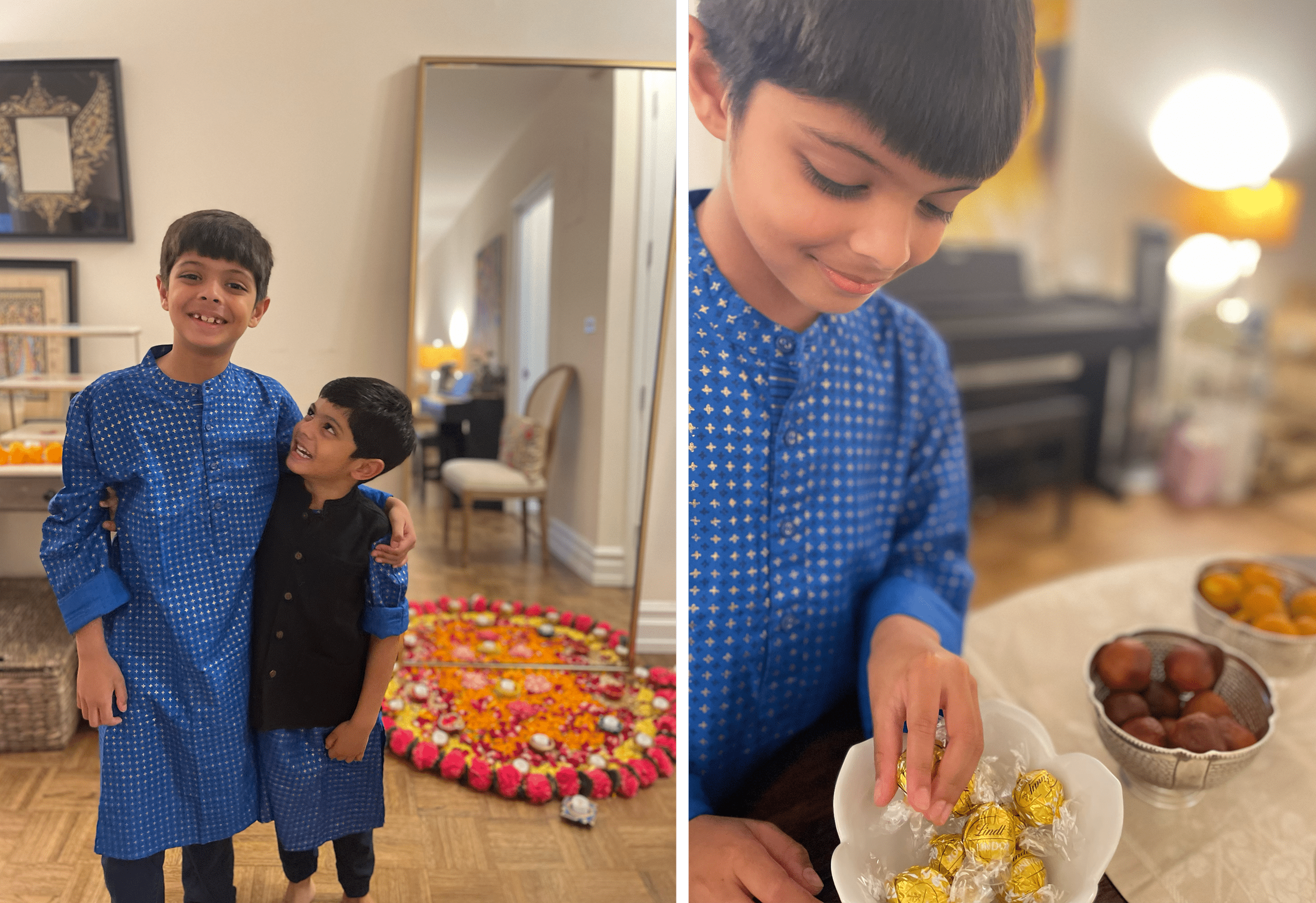
What Diwali means to me: It’s a time of celebration and unity, and together we pray for peace and prosperity. This Diwali I will especially pray for peace in the world.
For more information on the Seaport and The Culture Tree’s Diwali celebration on Friday, November 10, 2023, click here.
